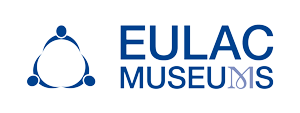The EU-LAC-MUSEUMS project engages with small, local museums and their communities. Often, the museums we are working with self-identify as "community museums", or "eco-museums". Our bi-regional research is highlighting both similarities and differences in how our museums operate, especially as regards museum governance. How these types of museums sit alongside the International Council of Museums (ICOM) Definition of a Museum is one of the core research questions being addressed by our bi-regional research.
Museum collections reflect the cultural and natural heritage of the communities from
which they have been derived. As such, they have a character beyond that of ordinary
property, which may include strong affinities with national, regional, local, ethnic,
religious or political identity. It is important therefore that museum policy is responsive
to this situation.
According to the ICOM Statutes, adopted by the 22nd General Assembly in Vienna, Austria on August 24th, 2007:
"A museum is a non-profit, permanent institution in the service of society and its development, open to the public, which acquires, conserves, researches, communicates and exhibits the tangible and intangible heritage of humanity and its environment for the purposes of education, study and enjoyment."
This definition is a reference in the international community.

